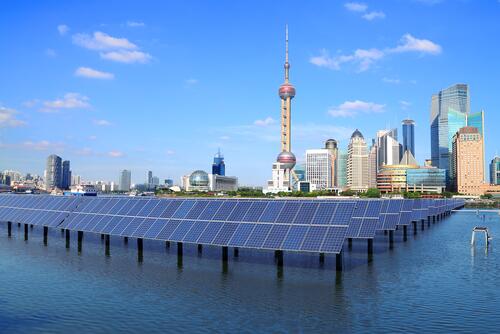A Brief Colonial History Of Ceylon(SriLanka)
Sri Lanka: One Island Two Nations
A Brief Colonial History Of Ceylon(SriLanka)
Sri Lanka: One Island Two Nations
(Full Story)
Search This Blog
Back to 500BC.
==========================
Thiranjala Weerasinghe sj.- One Island Two Nations
?????????????????????????????????????????????????Saturday, January 30, 2016
Pollution: Is China’s air getting better or worse?
Awoman
wears a mask as she visits Tiananmen Gate during a blue sky day in
Beijing. Average concentrations of air particulates in 189 Chinese
cities fell by 10 percent in 2015, according to a new Greenpeace report.
Pic: AP.

IN mid-2014 China announced a series of pollution-fighting measures designed
to improve air quality and lower greenhouse gas emissions. It would
invest in clean energy and green tech and promised to US$275 billion
towards improving air quality over a five-year period.
The benefits of these new rules would be manifold:
- Starting in 2015, banning the burning of the dirtiest coal would significantly reduce harmful sulfur and ash.
- Lower levels of mercury, arsenic, carbon monoxide, carbon dioxide, sulfur, ozone and nitrogen oxide emitted in China means lower levels in oceans and other countries. Up to 30 percent of these pollutants produced in China end up in the United States.
- If the world’s largest aggregate emitter of greenhouse gases cuts its output, it would have the most significant positive global impact of any single country.
- People in China’s industrial areas, as well as in nearby South Korea, would suffer less fromstrokes, heart attacks and respiratory diseases due to air pollution.
- China’s tourism economy, harmed by pollution, would improve as visitors flock to the country’s many amazing attractions, without the worry of getting sick from smog.
- A healthier working population would cost less in terms of medical care and take less sick days, thereby producing more.
What are the results of China’s anti-pollution measures so far?
Is China Burning Less Coal? : Greentech Mediahttp://www.rightrelevance.com/search/articles/hero?article=d3fc11b420eabaaabc36cbaa8fed769885395627&query=sustainable%20technology&taccount=sustaintechrr …
According to China’s official state statistical agency, CO2 emissions
probably fell in 2015 by around 3 percent. This is likely due to a
decrease in heavy industry and a trend towards renewable energy.
While reducing greenhouse gas emissions isn’t exactly the same as
reducing air pollution, there is significant crossover and the two are
inextricably linked. Naturally, as China’s CO2 emissions are falling, so
is pollution. Air particulate concentration fell by 10 percent in 189
cities last year, according to Greenpeace.
Yet how much does all this have to do with the slowing of China’s
economy, rather than anti-pollution measures and a transition towards
greener energy?
China’s economy grew less last year than it has in the last 25 years —
but it still grew, meaning a country’s emissions can fall while its
economy grows.
Jiang Kejun of the People’s Republic of China’s economic planning body,
the Energy Research Institute of the National Development and Reform
Commission, is quoted in Scientific American:
“Our previous expectation was that China would peak its emissions before 2025. But now we are confident that the emissions peak would arrive somewhere between 2020 and 2022.”
Reactions: Could China be fudging the facts?
While Greenpeace hailed China’s official statistics regarding falling emissions, there is also skepticism about how accurate they can be.
A 2013 Chinese government audit showed that hundreds of electricity
firms had provided false data on their emissions. Indeed, the main
barrier to cleaning up China’s air and reducing its emissions hasn’t
necessarily been policy, but rather a proper enforcement of policy.
A Reuters report quotes an unnamed manager of a state-owned power company:
“There is no guarantee of avoiding under-reporting (of emissions) at local plants located far away from supervisory bodies. Coal data is very fuzzy.”
An uphill battle
Is China's Solar Energy Business Not-for-Profit? [VIDEO] panel of experts at Greentech ... - http://alternativeenergy.com.pk/international-news/is-chinas-solar-energy-business-not-for-profit-video-panel-of-experts-at-greentech-medias-solar-summit/ …
Lately China has been cracking down on violators by creating stiffer
penalties, including threatening to close coal plants that were
inefficient, while increasing payments to those that upgrade their
facilities.
However, according to China’s Environment Ministry, as recent as
December, a “minority of firms” was still falsifying data on their
emissions.
Let’s hope that China’s policies continue to impact pollution and
greenhouse gas emissions and that their proper enforcement is stepped
up, leading to a cleaner, greener PRC.





